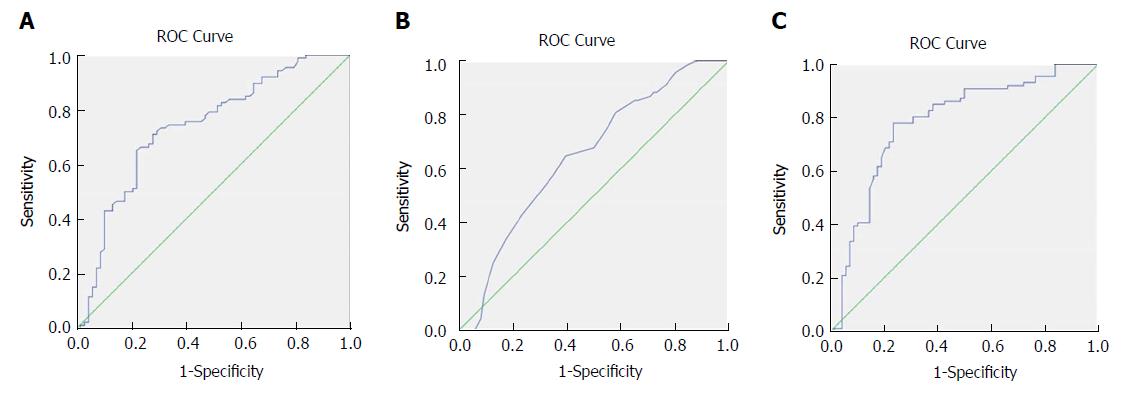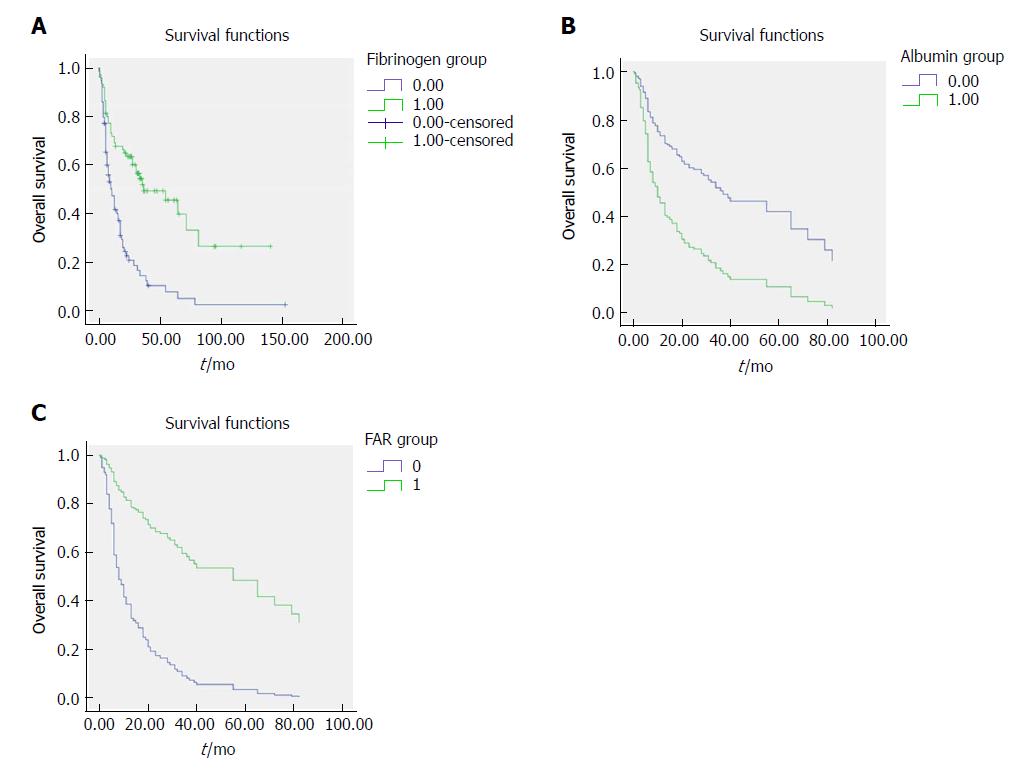Copyright
©The Author(s) 2018.
World J Gastroenterol. Aug 7, 2018; 24(29): 3281-3292
Published online Aug 7, 2018. doi: 10.3748/wjg.v24.i29.3281
Published online Aug 7, 2018. doi: 10.3748/wjg.v24.i29.3281
Figure 1 Receiver operating characteristics curve analysis based on fibrinogen (A), albumin (B), and fibrinogen to albumin ratio (C) for overall survival.
A: The area under the ROC curve (AUC) indicates the diagnostic power of preoperative plasma fibrinogen concentration. In this model, the optimum cut-off point for fibrinogen concentration was 3.47 g/L, AUC was 0.735 (95%CI: 0.654-0.816), with a sensitivity of 0.709 and a specificity of 0.721 by the Youden index; B: The AUC indicates the diagnostic power of preoperative plasma albumin level. In this model, the optimum cut-off point for albumin level was 40.5 g/L, AUC was 0.648 (95%CI: 0.562-0.735), with a sensitivity of 0.647 and a specificity of 0.605 by the Youden index; C: The AUC indicates the diagnostic power of preoperative FAR. In this model, the optimum cut-off point for FAR was 0.08, AUC was 0.783 (95%CI: 0.707-0.859), with a sensitivity of 0.779 and a specificity of 0.765 by the Youden index. ROC: Receiver operating characteristics curve.
Figure 2 Survival curve according to the presence of preoperative fibrinogen concentration (A), albumin level (B), and fibrinogen to albumin ratio (C).
A: Data compares fibrinogen concentration > 3.47 g/L vs ≤ 3.47 g/L group (P < 0.05). The number 1 for ≤ 3.47 g/L group, number 2 for > 3.47g/L group; B: Data compares albumin level > 40.5 g/L vs ≤ 40.5 g/L group (P < 0.05). The number 0 for albumin level > 40.5 g/L group, number 1 for albumin level ≤ 40.5 g/L group; C: Data compares FAR > 0.08 vs ≤ 0.08 group (P < 0.05). The number 1 for FAR > 0.08 group, number 0 for FAR ≤ 0.08 g/L group. FAR: Fibrinogen to albumin ratio.
- Citation: Xu WY, Zhang HH, Xiong JP, Yang XB, Bai Y, Lin JZ, Long JY, Zheng YC, Zhao HT, Sang XT. Prognostic significance of the fibrinogen-to-albumin ratio in gallbladder cancer patients. World J Gastroenterol 2018; 24(29): 3281-3292
- URL: https://www.wjgnet.com/1007-9327/full/v24/i29/3281.htm
- DOI: https://dx.doi.org/10.3748/wjg.v24.i29.3281










